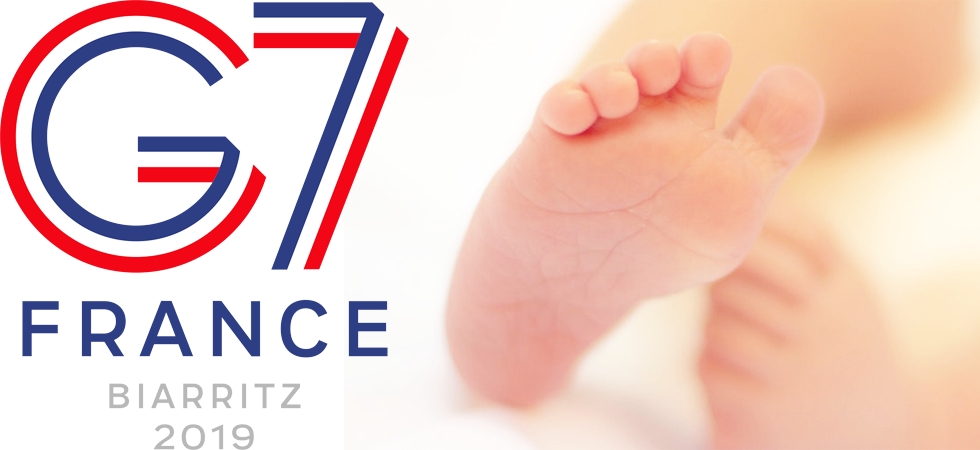This year's summit had a particular focus on gender equality. An independent council, formed after a previous summit, produced a document entitled, "Recommendations of the Gender Equality Advisory Council" which provides a blueprint for the radical feminist policies member nations are expected to adopt. These include establishing a feminist foreign policy, and ensuring that climate- strategies are tailored to account for women since climate change "affects men, women and children differently". Member nations are invited to implement at least one of the laws recommended in the document before the next G7 Summit. Leaders are asked to be accountable to their commitments and try to have them in place to coincide with the Sustainable Development Goals that will also be in place by 2020.
As is the case with other documents that promote a globalist agenda - such as those issuing from the UN - this one is interspersed with concerns about legitimate abuses such as FGM and the lack of education opportunities for girls in developing nations. But concern for the valid problems confronting some women is overshadowed by an emphasis on seriously damaging social schedules, and on manufactured crises exemplified by the document's focus on sexual harassment. The recommendations conflate genuine sexual violence with the taking of offence and also suggest that men are intrinsically abusive. From the document:
"The #MeToo movement has underlined that sexual harassment is a form of violence and discrimination rooted in historic power imbalances, and a male dominated culture, and which is prevalent in all walks of life."
However, one of the most concerning sections of the document is its suggestion that ensuring abortion on demand and free contraception are human rights that should be readily available under the guise of equitable health services.
Extreme abortion
"At the national level, Canada protects the lives, freedom, and safety of women by allowing abortion by law without specific legal specifications on gestational limits. It is available upon request of a woman of any age, and is covered by insurance in hospitals."Abortion in Canada is decriminalized; hence it is accessible to girls and women as a general medical service. Lack of legal specifications on gestational limits and parental consent make it accessible and available to all girls and women. Treating abortion as any other medical procedure rather than a legal process is progressive as per WHO guidelines on safe abortion and other key research."The law regulates abortion but does not present unnecessary barriers to young girls and women seeking abortion services. It also establishes that the National Board of Health and Welfare must review all cases of abortions that have been denied as a mechanism to ensure the delivery of essential services to women is upheld."
Free contraception without parent's knowledge
Another newly-discovered human 'right' is access to artificial contraception, and the Recommendations use the examples of Paraguay and the UK to illustrate their idea of good laws in this regard.
"The law in Paraguay provides the right for all women to obtain a means of contraception free of charge and without any age limit."Ensuring all girls and women have access to family planning and contraception services involves removing barriers that prohibit young girls and unmarried women from accessing services, and from choosing from a range of contraception opportunities.The law in Paraguay does not discriminate based on age, provides services free of charge, and has various strategies that take into account marginalised populations."
"The UK provides about 15 types of contraception free of charge to all girls and women. While not written into law, the UK provides a wide range of contraceptive choices through the National Health Services (NHS).The law, however, places the onus on the health professional to determine competency and, once established, a young person (i.e. under the age of 16) may access service independently.The NHS guidelines state that the only time a professional might want to tell someone else is if they believe a young adult is at risk of harm, such as abuse. The risk would need to be serious, and they would usually discuss this with the young adult first.”
Censorship of pro-life information
Another stated goal of the Equality Council is to "Prohibit misinformation on safe abortion"; the document cites French laws as an exemplar:
The law must prohibit misinformation on abortion when it aims to intentionally mislead women on abortion. In France, the law of 20 March 201753 extends the offence to misinformation websites.“Misinformation on abortion is largely spread on the internet and intentionally misleads women on their right to choose whether or not to have an abortion. Comprehensive information on abortion services can be life-saving for women. Accurate knowledge can reduce the number of unsafe abortions that take place, and in turn reduce maternal deaths.This law was chosen as an example of a specific law that understands the value of accurate information regarding abortion in a time when their countries actively obstruct access to life-saving reproductive health information."

What about the baby girls?
Considering that the Recommendations of the Advisory Council are meant to provide a comprehensive look at any legislation which adversely affects women, there is a glaring omission from its pages: nowhere is there any mention of sex-selection abortion or of the gender imbalance it creates. As Catherine Robinson, spokesperson for Right to Life UK said:
“It is not at all clear how promoting extreme abortion legislation (or any abortion legislation for that matter) advances the empowerment of women. As is well-known by now, sex-selective abortion is responsible for 63 million women “missing” women in India alone and likely millions more in across the globe.”
“Ironically the Gender Equality Advisory Council is promoting a practice which has women as its primary victims.”
This article first appeared at Family Life International








